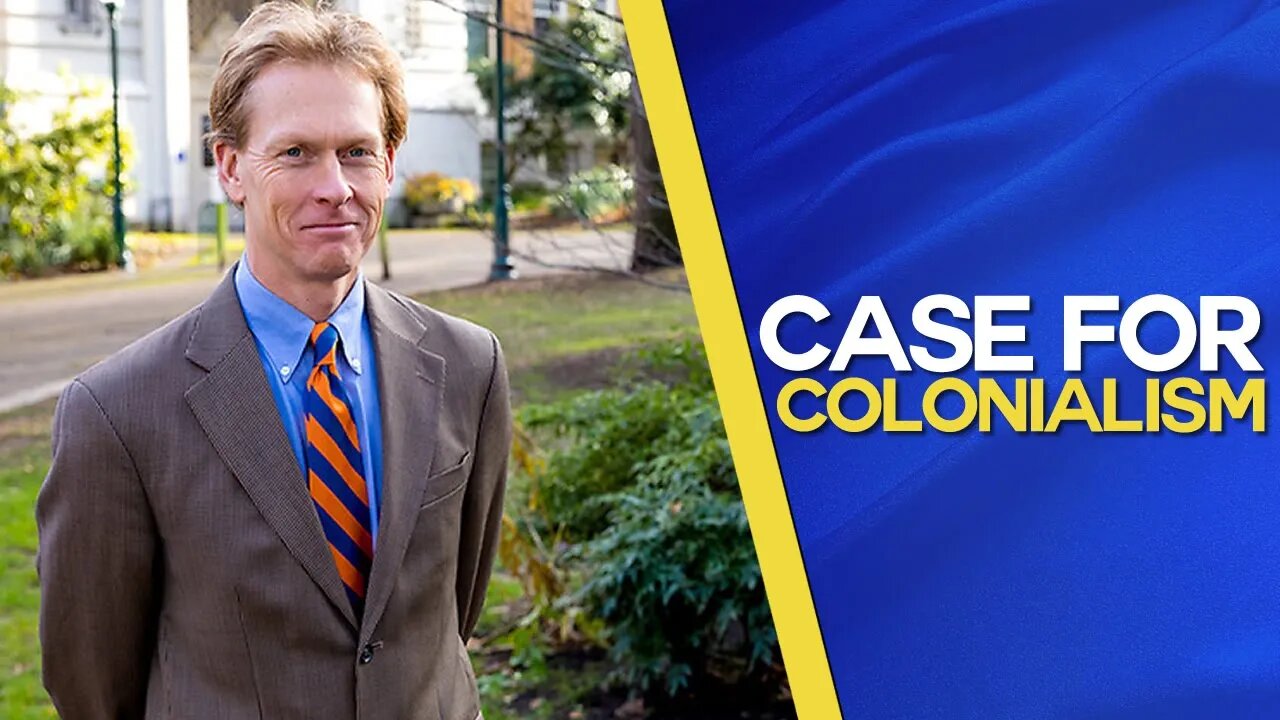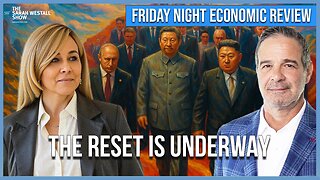Premium Only Content

Professor Bruce Gilley joins Neil Oliver on GB News to debate the "Case for Colonialism".
For the last hundred years, Western colonialism has had a bad name. Colonialism has virtually disappeared from international affairs, and there is no easier way to discredit a political idea or opponent than to raise the cry of “colonialism.” When South African opposition politician Helen Zille tweeted in 2017 that Singapore’s success was in part attributable to its ability to “build on valuable aspects of colonial heritage,” she was vilified by the press, disciplined by her party, and put under investigation by the country’s human rights commission.
It is high time to reevaluate this pejorative meaning. The notion that colonialism is always and everywhere a bad thing needs to be rethought in light of the grave human toll of a century of anti-colonial regimes and policies. The case for Western colonialism is about rethinking the past as well as improving the future. It involves reaffirming the primacy of human lives, universal values, and shared responsibilities—the civilizing mission without scare quotes --that led to improvements in living conditions for most Third World peoples during most episodes of Western colonialism. It also involves learning how to unlock those benefits again. Western and non-Western countries should reclaim the colonial toolkit and language as part of their commitment to effective governance and international order.
There are three ways to reclaim colonialism. One is for governments and peoples in developing countries to replicate as far as possible the colonial governance of their pasts—as successful countries like Singapore, Belize, and Botswana did. The “good governance” agenda, which contains too many assumptions about the self-governing capacity of poor countries, should be replaced with the “colonial governance” agenda. A second way is to recolonize some regions. Western countries should be encouraged to hold power in specific governance areas (public finances, say, or criminal justice) in order to jump-start enduring reforms in weak states. Rather than speak in euphemisms about “shared sovereignty” or “neo-trusteeship,” such actions should be called “colonialism” because it would embrace rather than evade the historical record. Thirdly, in some instances, it may be possible to build new Western colonies from scratch.
Colonialism can return (either as a governance style or as an extension of Western authority) only with the consent of the colonized. Yet now that the nationalist generation that forced sudden decolonization on hapless populations has passed away, the time may be ripe. Sèbe has documented how the founding figures of Western colonialism in Africa (such as Livingstone in Zambia, Lugard in Nigeria, and de Brazza in Congo) are enjoying a resurgence of official and social respect in those countries now that romanticized pre-colonial and disappointing post-colonial approaches to governance have lost their sheen. As one young man on the streets of Kinshasa asked Van Reybrouck in his seminal 2010 book on the Congo: “How long is this independence of ours going to last anyway? When are the Belgians coming back?”
Follow on Twitter: https://twitter.com/BasedCongo
#BruceGilley #NeilOliver #Colonialism #GBNews
-
 54:52
54:52
Belgian Congo
5 months agoInterview avec Monsieur Philippe Makasi Bondo: Voir un Congo nouveau, prospère, sécurisé et soutenu
481 -
 DVR
DVR
Man in America
8 hours agoExposing the Cover-Up That Could Collapse Big Medicine: Parasites
17.6K8 -
 LIVE
LIVE
CHiLi XDD
3 hours agoTekken Fight Night
139 watching -
 LIVE
LIVE
ItsLancOfficial
9 hours agoFREAKY FRIDAY-GETTING FRIED-WELP! #TOTS
70 watching -
 1:09:11
1:09:11
Sarah Westall
4 hours agoRead the Signs: Are We Already Operating in a New Financial System? w/ Andy Schectman
20.7K4 -
 1:32:53
1:32:53
Flyover Conservatives
8 hours agoRicky Schroder Exposes How Hollywood Planted Him as a Child Star | FOC Show
22K3 -
 LIVE
LIVE
JahBlessCreates
2 hours ago🎉 TEKKEN TING, and maybe some music...
171 watching -
 LIVE
LIVE
GritsGG
3 hours agoTop 250 Ranked Grind! Dubulars!🫡
66 watching -
 LIVE
LIVE
StuffCentral
3 hours agoStar Stuffy
22 watching -
 6:02
6:02
Blackstone Griddles
4 hours agoPrime Rib Brisket Burgers on the Blackstone Griddle
7.29K2